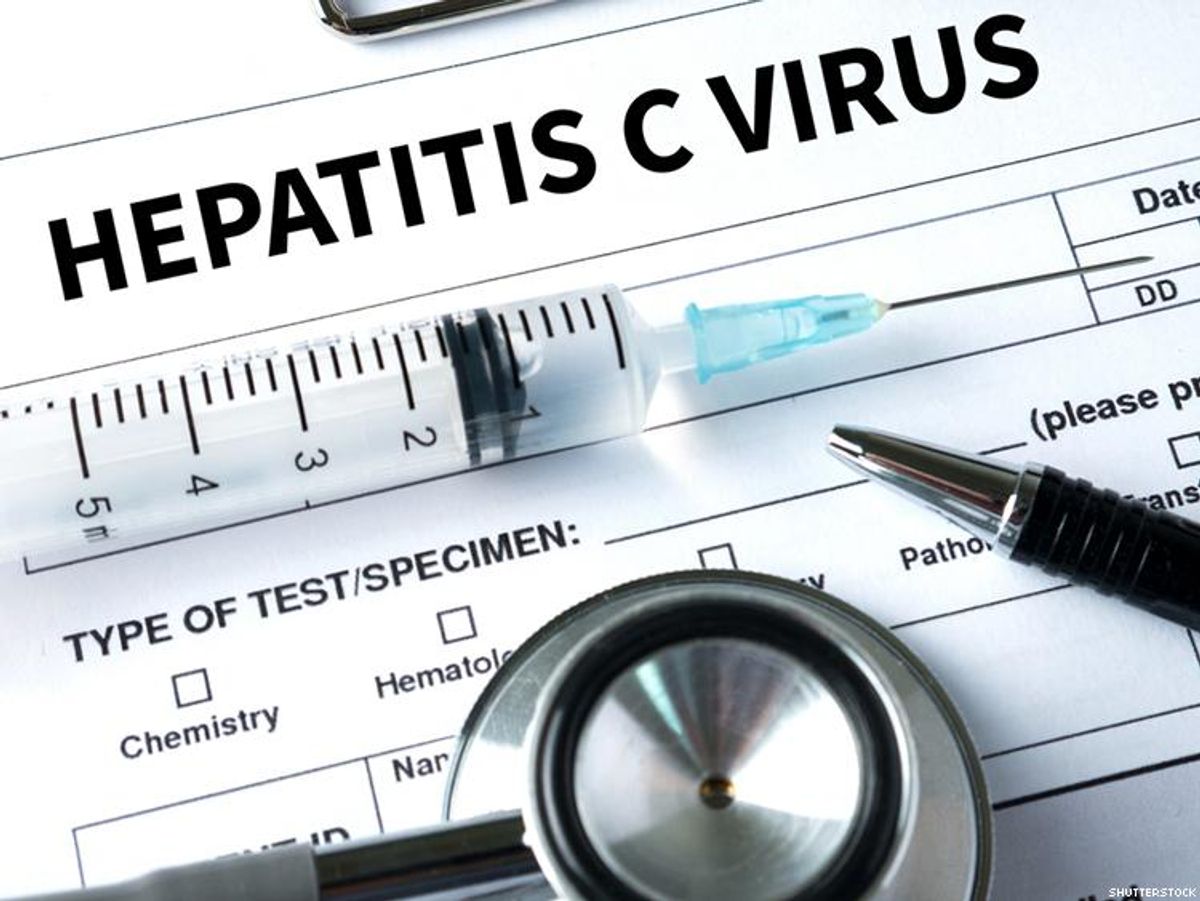Treatment
New Hep C Cure Drugs May Not be as Safe as You Think

A new report questions the safety of a the new 12-week hepatitis C cure.
January 27 2017 7:00 AM EST
May 26 2023 1:47 PM EST
By continuing to use our site, you agree to our Private Policy and Terms of Use.

A new report questions the safety of a the new 12-week hepatitis C cure.
Despite recent medical breakthroughs in the cure for hepatitis C, many of which saw an estimated nine out of 10 people living with the virus drop to undetectable levels, a new report by the Institute for Safe Medication Practices suggests these modern drugs have severe side-effects. Hepatitis C is a common comorbidity for those with HIV. Drugs like sofosbuvir and simeprevir, usually administered with another antiviral drug, were approved by the Food and Drug Administration in 2013. As Plus previously reported, within 12 weeks about 90 percent of cases had managed to clear hep C altogether, heralding the drugs as breakthroughs.
According to the report, researchers have found hundreds of cases where health professionals and patients reported antiviral failure in these types of drugs, which also cost a pretty penny.
Drugs like sofosbuvir (brand name: Sovaldi), simeprevir (brand name: Olysio), and a ledipasvir/sofosbuvir combo (brand name: Harvoni) can cost upwards of $100,000. According to the report, around 250,000 people took these new medications in 2015. By June 2016, researchers saw 524 cases of liver failure (55 percent were male around age 61) and 165 of them resulted in deaths. Research also identified 761 reports stating that the drugs didn’t work at all.
Of these cases, 181 were taking Viekira Pak (including Technivie and Viekira XR), 171 were taking Sovaldi, 121 were taking Harvoni, 99 were taking Daklinza, 37 were taking Olysio, and 1 was taking Zepatier.
And yes, these drugs are breakthroughs.
Before newer methods of treating hep C were approved by the FDA, the virus was typically treated with a cocktail of antivirals like ribavirin and other forms of interferon alfa for almost a year. Unfortunately, people had bad side-effects, including hemolytic anemia, vomiting, diarrhea, insomnia, psychosis, depression, even suicide. As a result, many of them stopped undergoing treatment.
Once these newer developmental drugs came to the market, studies showed it took only 12 weeks for 89 to 100 percent of hep C cases to reach undetectable levels. In fact, Harvoni (sofosbuvir/ledipasvir) has been shown to be just as effective in treating hep C for HIV-positive people as it does with HIV-negative people, without the nasty side-effects.
In 2015 alone, Harvoni accounted for $14 billion in estimated spending at published list prices, which, as the report shows, is more than any other prescription drug for any medical purpose. In comparison, the National Institutes of Health spent $4.9 billion on all cancer research in 2015, and $4.4 billion to study all infectious diseases.
It should be noted that the data attached to the report did not include previous medical history of the hep C cases, however 90 percent of them were reported by their healthcare professionals as a drug-related adverse event, rather than a natural progression of hep C.
It wasn't until October 2016 that the FDA said there was a safety problem concerning newer antiviral drugs — while it cleared hep C in 24 cases, the meds showed to reactivate hep B infections that had otherwise been stalled. As a result, manufacturers were required to have a boxed warning to their labels.
Clearly, further investigation needs to be had surrounding the effects of modern drugs, but as Dr. Robert S. Brown of the Center for Liver Disease and Transplantation at New York-Presbyterian said to The New York Times, while we shouldn’t ignore it, we also don’t want to keep important drugs from patients.
“We don’t want people to overreact and not treat patients who should be treated,” Dr. Brown said. “A lot of doctors are unclear about it, and if doctors are unclear, patients are, too.”
The need for modern hep C drugs is evident. With nearly 3 million people in the United States living with hep C, it's crucial to have medications that have swift results. But should we think twice before rushing it them to market?
“Here is something that really qualifies as a breakthrough, and we have policies to get it into use as quickly as possible, which means we know less about it,” co-author of the study Thomas J. Moore told The Times. “Benefits and side effects evolve over the long term, not over 12 weeks.”
Gilead spokesman Mark Snyder also stated in an email to New York Times, “We closely assess both post-marketing safety reports as well as safety data from our clinical trials on an ongoing basis and have found no suggestion of a causal relationship between Sovaldi or Harvoni and liver failure.”